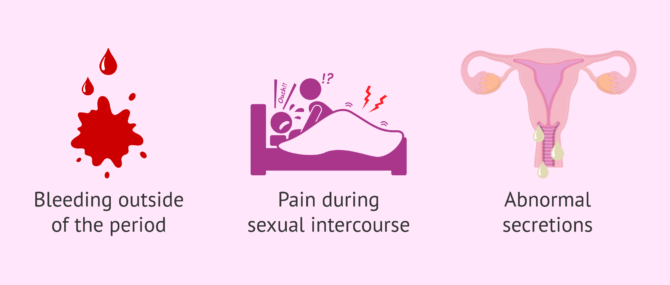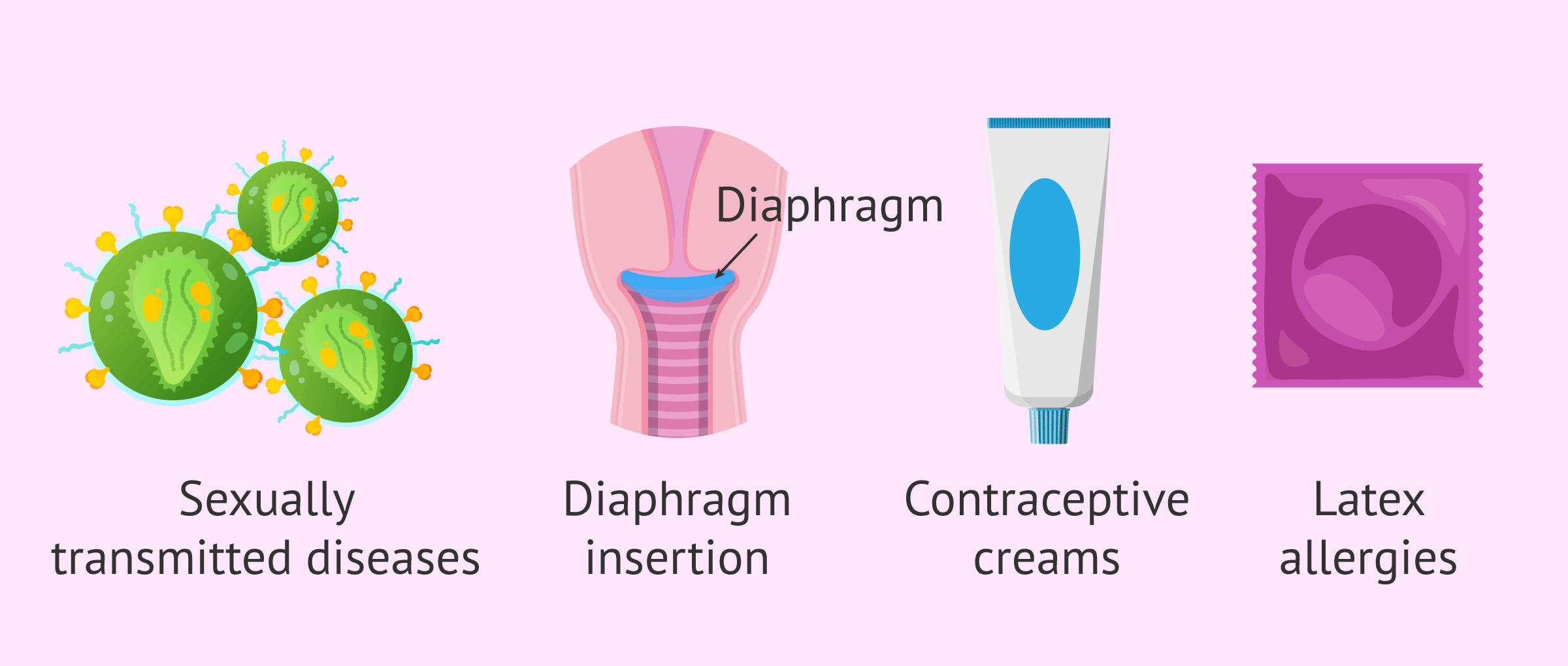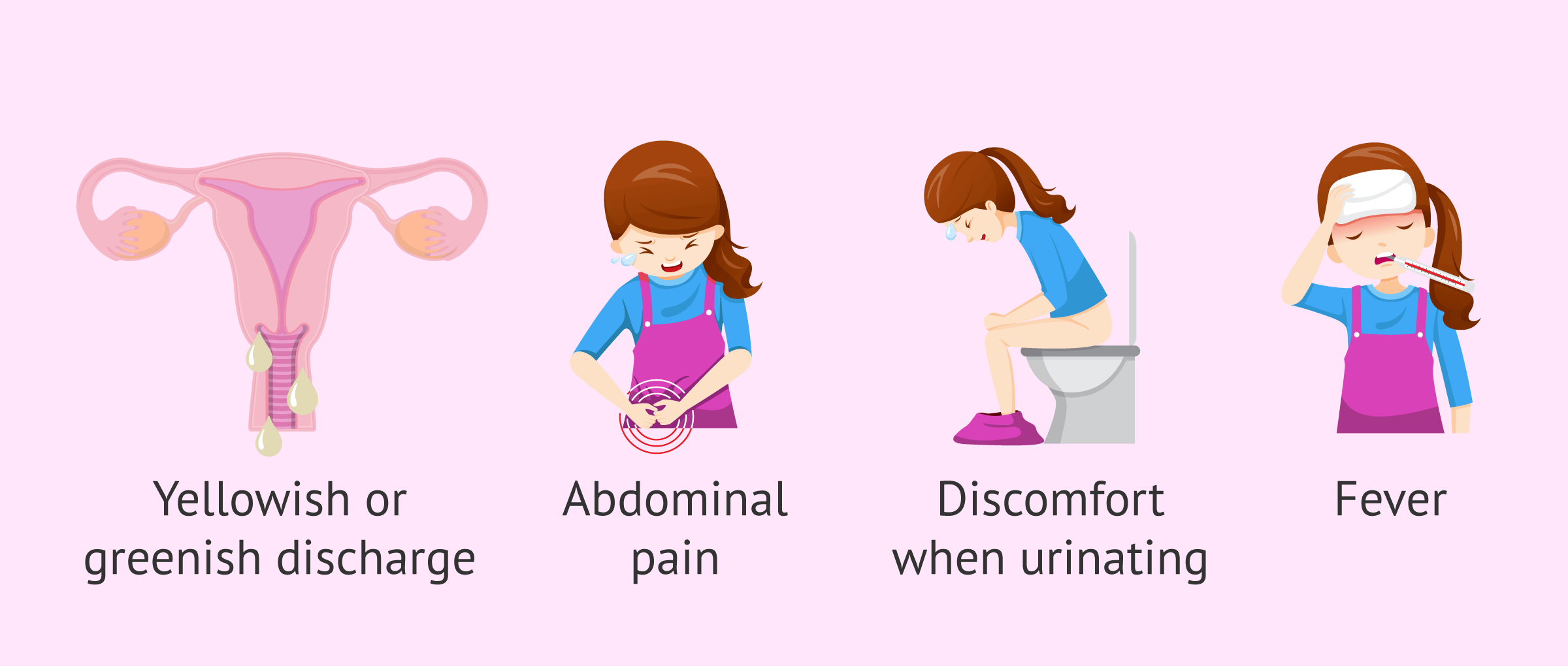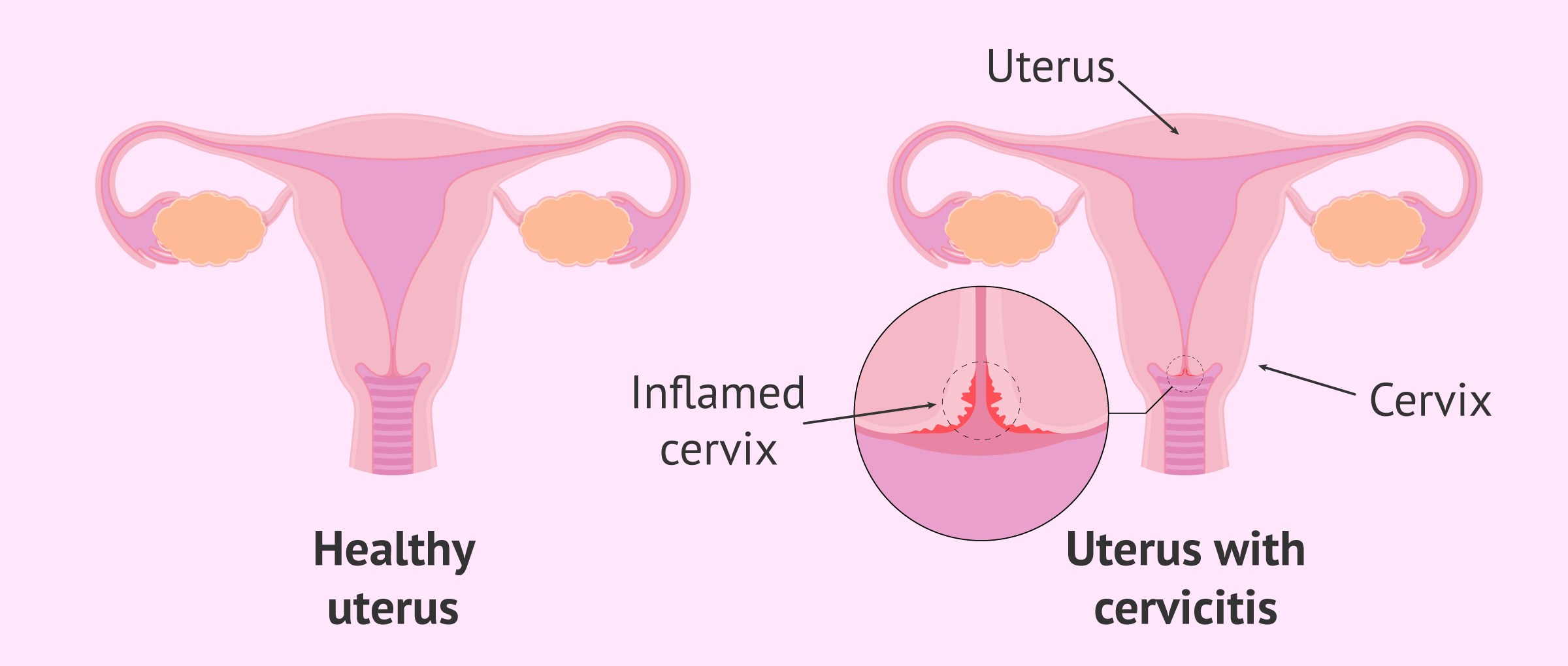Cervicitis is an inflammation of the cervix or uterine cervix quite common in women, as it occurs in 50% of them. This condition can be classified into acute or chronic cervicitis from a clinical point of view.
The most common cause of cervical inflammation is a sexually transmitted infection (chlamydia, gonorrhea, genital herpes, etc.) or the presence of certain germs from the woman's own body. In addition, cervicitis may be caused by a non-infectious agent, either by irritation, injury to the cervix or allergies.
Most women diagnosed with cervicitis are asymptomatic or have nonspecific symptoms such as intermenstrual bleeding, painful intercourse, etc.
Provided below is an index with the 7 points we are going to expand on in this article.
- 1.
- 1.1.
- 2.
- 3.
- 3.1.
- 4.
- 4.1.
- 4.2.
- 4.3.
- 4.4.
- 4.5.
- 5.
- 6.
- 7.
What are the causes of cervicitis?
Usually, the main cause of cervical inflammation is a bacterial or viral infection acquired during unprotected sex.
Specifically, some of the sexually transmitted infections that can cause cervicitis are as follows:
- Chlamydia.
- Gonorrhea.
- Genital herpes.
- Human papillomavirus (HPV).
- Trichomoniasis.
Infections in a woman's vagina can also cause inflammation of the cervix. This is what happens with bacterial vaginosis and Trichomonasvaginitis.
However, infections are not the only cause of cervicitis. There are other factors that can also lead to this condition: diaphragm insertion, contraceptive creams, allergies to condom latex, etc.
Risk Factors
The risk of sexually transmitted diseases increases in those who are sexually active and do not use barrier protection. Therefore, some factors that increase the likelihood of a woman suffering from cervicitis are:
- Risky sexual behaviors, such as not using barrier protection and having multiple partners.
- Beginning to have sex at an early age.
- History of STIs.
- Menopause.
In case of having been exposed to any risk situation and/or having suspicion of a possible bacterial or viral infection, it is advisable to go to the doctor.
What symptoms does cervicitis cause?
Most women who present with cervicitis do not describe specific symptoms, although some of the following clinical signs may arise:
- Yellowish or greenish discharge and may have an odor.
- Pain in the lower abdomen and even during sexual intercourse.
- Stinging, burning or irritation in the affected area.
- Discomfort when urinating.
- Feverish states.
Although the symptoms described above are the most frequent, when the specialist performs a gynecological examination he may also observe redness of the cervix and inflammation of the vaginal walls.
In addition, if inflammation of the ligaments responsible for supporting the pelvic organs occurs, the woman will have back pain, dysmenorrhea, or menorrhea. In the case of chronic cervicitis, Nabothian cysts, a small nodule caused by the accumulation of cervical mucus, may appear.
Therefore, annual gynecological consultations for women are of vital importance to verify if there are any changes that require treatment.
Diagnosis and treatment of cervicitis
In order to carry out the diagnosis, it is very important to visit a specialist at the onset of any type of these discomforts.
After a gynecological examination or pelvic examination, the woman may feel discomfort due to inflammation of the vagina or redness and discharge from the cervix. In addition, the physician will observe an inflamed cervix compared to a woman without cervicitis. Sometimes, the gynecologist also considers it necessary to perform a cytology to assess whether the cervicitis is due to an infection.
The cervix acts as a barrier to prevent bacteria and viruses from entering the uterus. When the cervix is infected, there is an increased risk of the infection moving to the uterus, fallopian tubes, and even the ovaries, leading to pelvic inflammatory disease (PID) and causing female infertility in some cases. Therefore, timely diagnosis and appropriate treatment for each woman are of vital importance.
Considering undergoing a fertility treatment? By getting your individual Fertility Report your will see different clinics especially selected for you out of the pool of clinics that meet our strict quality criteria. Moreover, it will offer you a comparison between the fees and conditions each clinic offers in order for you to make a well informed choice.
Generally, the treatment of cervicitis is based on antibiotics under medical prescription. If the condition is chronic, it may require the application of ova and may even require other procedures such as cauterization.
Throughout the treatment, specialists advise women to maintain good intimate hygiene and not to have sexual intercourse.
Can cervicitis be prevented?
In relation to the prevention of cervicitis, there are different measures established by specialists. When these measures are carried out correctly, the risk of cervicitis is reduced to a minimum.
If the woman maintains an active sexual life and with different people, the use of condoms is always recommended to avoid the transmission of any infectious agent.
Another preventive measure for cervicitis is to avoid chemical irritants, such as douching, using tampons without following the manufacturer's instructions, etc.
On the other hand, the hygiene of the intimate area is of vital importance. There are gels for cleaning intimate areas that have a neutral pH and therefore do not alter the vaginal balance.
FAQs from users
How is cervicitis cured?
Cervicitis is inflammation of the cervix or cervix due to multiple causes, such as a vaginal infection, an allergic reaction, or a sexually transmitted disease (STD).
Therefore, to establish the best treatment for cervicitis it is important to know the cause of the inflammation.
When we observe cervicitis in the reproductive field it is important to perform a vaginal culture and an endocervical culture. If the result of the culture shows that there is an infection, it is advisable to treat it so that this infection does not ascend to the uterine cavity.
Read more
Is cervicitis contagious?
No. Cervicitis is an inflammation of the cervix, whose symptoms may include bleeding outside the menstrual period, pain during sexual intercourse and abnormal and/or abundant secretions. Asymptomatic cervicitis may also occur.
Cervicitis itself is not contagious, as it can have several non-infectious causes: an allergic reaction (vaginal hygiene products, latex...), vaginosis (presence of excessive bacteria in the vaginal flower).

However, in most cases, cervicitis is a response to a sexually transmitted infection, such as chlamydia, gonorrhea, vaginal herpes or trichomoniasis. In these cases, it is not the cervicitis that will be spread, but the infection causing the inflammation. With a treatment of the inflammation, the cervicitis can be successfully eliminated.
What is the difference between acute cervicitis and chronic cervicitis?
The main difference between the types of cervicitis lies in the cause. Chronic cervicitis is usually not caused by infection and usually presents as redness of the cervix due to other factors, such as allergies. This type of condition can also be caused by pH disturbances.
Acute cervicitis occurs as a result of a bacterial or viral infection and is therefore associated with sexually transmitted infections. In addition, acute cervicitis is frequently found after childbirth.
In any case, the infection can move up the female reproductive tract and lead to endometritis and pelvic inflammatory disease (PID).
What is the prognosis of cervicitis?
Inflammation of the cervix (cervicitis) generally has a good prognosis, as most women outgrow the condition after treatment.
However, sometimes cervicitis can last for months or years. Complications can also occur in women if the infection spreads through the female reproductive tract, although they are rare.
Are there home remedies to treat cervicitis?
There are some natural treatment options for cervical inflammation. For example, you can drink infusions of primrose or carrot tea.
Another home remedy for cervicitis would be to use aloe vera for its regenerative power and anti-inflammatory function. However, it is advisable to visit a specialist if symptoms of possible cervicitis appear.
Recommended readings
If you want to learn more about other cervical disorders, you can visit this article: Cervical factor: female sterility due to cervical abnormalities.
On the other hand, one of the treatments for inflammation of the cervix is cauterization. If you wish to obtain more information related to this topic, we recommend you to visit this link: What is cervical cauterization?
We make a great effort to provide you with the highest quality information.
🙏 Please share this article if you liked it. 💜💜 You help us continue!
References
Hartmann D, Rohkohl J, Merbach S, Heilkenbrinker T, Klindworth HP, Schoon HA, Hoedemaker M. Prevalence of cervicitis in dairy cows and its effect on reproduction. Theriogenology. 2016 Jan 15;85(2):247-53. doi: 10.1016/j.theriogenology.2015.09.029. Epub 2015 Sep 25 (View)
M Josephine Lusk, Frances L Garden, Robert G Cumming, William D Rawlinson, Zin W Naing, Pam Konecny. Cervicitis: a prospective observational study of empiric azithromycin treatment in women with cervicitis and non-specific cervicitis. Int J STD AIDS. 2017 Feb;28(2):120-126. doi: 10.1177/0956462416628319. Epub 2016 Jul 10 (View)
Oliveto J, Muinov L, Cystic Cervicitis: A Case Report and Literature Review of Cystic Cervical Lesions. J Comput Assist Tomogr. Jul-Aug 2016;40(4):564-6. doi: 10.1097/RCT.0000000000000451 (View)
Shawn K Mattson, Julia P Polk, Paul Nyirjesy. Chronic Cervicitis: Presenting Features and Response to Therapy. J Low Genit Tract Dis. 2016 Jul;20(3):e30-3. doi: 10.1097/LGT.0000000000000225 (View)
W D Rosenfeld, J Clark. Vulvovaginitis and cervicitis. Pediatr Clin North Am. 1989 Jun;36(3):489-511. doi: 10.1016/s0031-3955(16)36682-2 (View)
FAQs from users: 'How is cervicitis cured?', 'Is cervicitis contagious?', 'What is the difference between acute cervicitis and chronic cervicitis?', 'What is the prognosis of cervicitis?' and 'Are there home remedies to treat cervicitis?'.
Authors and contributors


More information about Cristina Algarra Goosman







Hi, the doctor told me I had a super inflamed cervix and has given me medication for the infection. I don’t know what the exact cause is, all the tests he has done have come back negative. Could it be the latex?
Hello Anna,
Latex allergies can indeed create cervicitis, if all other causes have been ruled out by your doctor I recommend that once you have healed and cleared the infection from your body you opt to try non-latex condoms and see if that helps the condition.
Also doctors can corroborate this by testing you specifically for latex allergy.
I hope I have helped you.
Best regards.
I went to the doctor for some small warts in my vagina and he told me I have HPV, I also have itching and they told me I have an infection, is this why? Thank you
Hello Regina,
If you are diagnosed with HPV, it is important to treat it and prevent it from developing to the point of cancer.
Cervicitis infection can be caused by HPV.
I recommend that you go to your doctor and take treatment very seriously as it can be dangerous. I also leave you this article about HPV so you can learn a little more about it:
I hope I helped you.
Best regards.